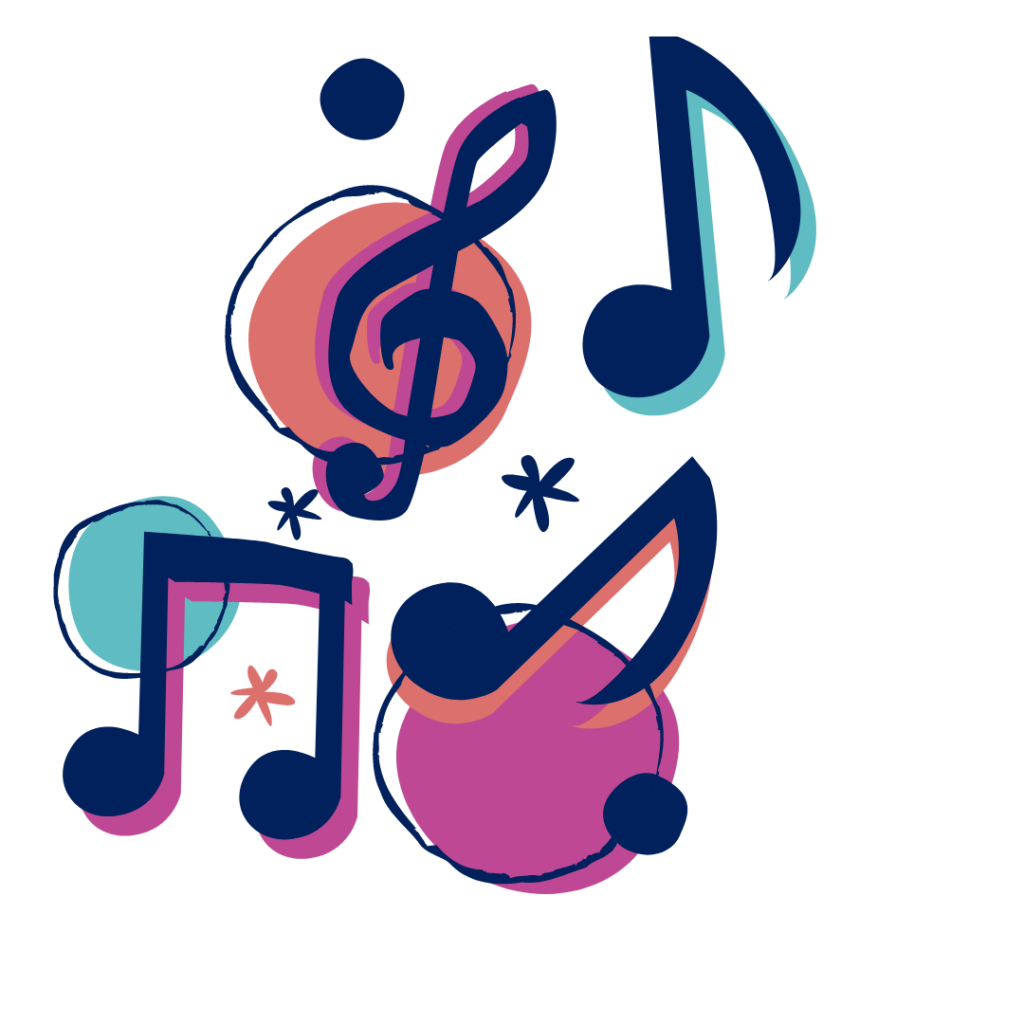April 13: Music and the Compassionate Mind with Rachel Nolan (Virtual)
Join us for this free, virtual workshop with music therapist Rachel Nolan! This session is open to students, staff, and faculty, and will be a great chance to decompress from end-of-term stress.
In this workshop, we’ll explore different ways of relating to music to support our wellbeing while applying a helpful lens to approach self-judgment, fears and challenges.
Compassion-Focused Therapy was developed to support people whose shame has kept them stuck. Researchers realized that as long as people’s minds were harsh, motivated by trying to get it together or get it right, no amount of teaching “cognitive distortions” or similar strategies would relieve what it feels like inside. “Compassionate Mind Training” can teach a way of relating to ourselves that is focused on noticing and caring about suffering, rather than being crushed by it or indifferent to it.

Drawing from CMT, we can guide our brains and bodies through hard times, out of an internal brain minefield and towards a feeling of safety, strength and connection. In this 90-minute session, we will make space to explore our relationships with music, with self-expression, and with care and safeness. We will introduce concepts from CFT, discuss the effects of music, listen to suggested music and have the option to independently listen to music of our own choosing, as well as options to participate individually in music-making. Any level of experience with music, including none, is welcome.
For many of us, music can evoke intense feelings, and practicing comfort can be activating or difficult. This session will be designed to support folks to participate at their own pace and to practice being supportive of their needs. Participants can engage according to their own comfort level in discussions and music experiences, including by speaking, typing, or just observing and personal practice. Please note that this is not a group therapy session but an informational, experiential session of using music as part of self-care and healing, and to feel connected with others in a validating space, on your own terms.
Participants will come away having encountered/shared ways to:
- Understand, notice and interrupt shame
- Honour their existing relationship with music
- Use music as a tool for attention training, grounding and safeness
- Use music as a tool for to care for, validate and regulate emotions and threat responses
- Use music as a tool to be our own compassionate ally, and to feel connected with others.
Recommendations:
- Please have a pen and paper available
- We recommend having headphones available if possible
- There will be the option to make brief visual art or designs during the workshop; coloured; pencils or other art tools are encouraged
- We recommend finding a place with as much privacy and as little chance of interruption as possible
- We recommend having a comfortable space with comforting objects nearby, if possible. This might include a favourite sweater, blankets, warm drinks, photo of a loved one, a beloved book, pillows, or other comfort objects. It’s okay if this isn’t an option!
- A writing implement, as well as coloured pencils or other art tools and paper are optional but encouraged; there will be the option to make brief visual art or designs, or individual writing, during the workshop
- We recommend having headphones available if possible
- We recommend finding a place with as much privacy and as little chance of interruption as possible (but you can still participate and benefit if this isn’t available for you)
- We recommend reflecting on and/or cueing up music that you personally find comforting, for independent listening or sharing during the session (optional)
Compassion-Focused Therapy and Compassionate Mind Training were conceived and developed by Paul Gilbert. To find out more about Compassion-Focused Therapy, visit https://www.compassionatemind.co.uk/ .

About Rachel Nolan
I’m a verbal psychotherapist and music therapist in Hamilton and I’m a white, cis, queer settler woman. I encountered Compassion-Focused Therapy (CFT) and Compassionate Mind Training (CMT) while researching shame and music therapy as part of my graduate work, and now interweave CFT with other tools I have trained in, like narrative therapy, dialectical behaviour therapy and resource-oriented music therapy. In my practice, I support clients in acknowledging the ways that systemic trauma impacts both our well-being and our attempts to get well. I also work to disrupt gatekeeping models of music of value, and to promote the idea that every person’s relationship to music is a resource that matters. I now mainly work verbally with folks dealing with the effects of trauma, overwhelming emotions, eating disorders and related experiences, perfectionism, and other harsh internal realities. I also offer music therapy in elder care. Outside of work and education I have spent my adult life involved in community organizing in Hamilton with a focus on creating community resources for healthcare, support and skillsharing, as well as investing energy towards indigenous solidarity, accessible care and housing, and social justice. I also value being a part of local music collaborations. I so appreciated sharing music with the SVPSC during our music therapy workshop last Fall, and I’m looking forward to this Spring workshop and to sharing these ideas and experiences.
